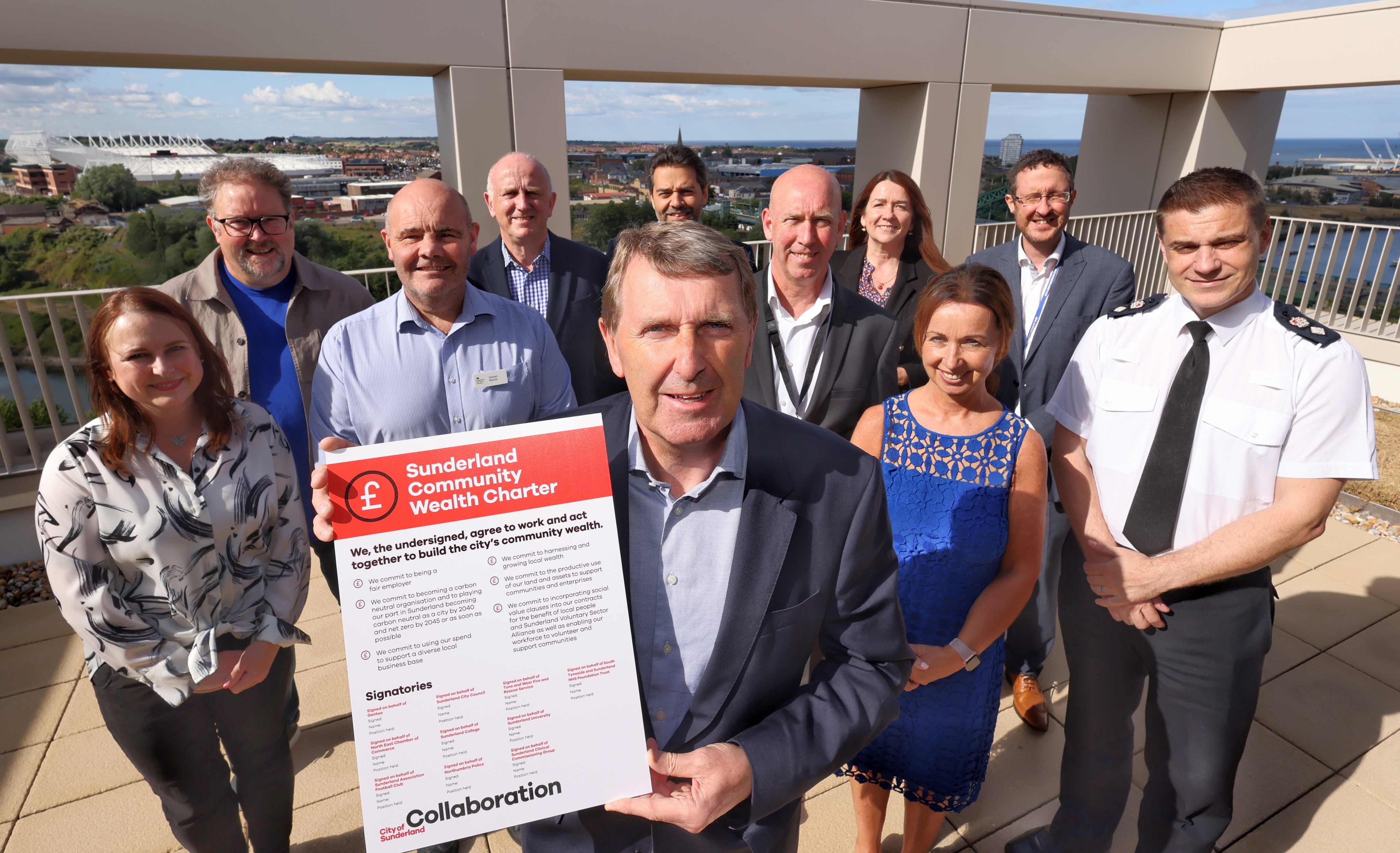Published on: 6 July 2022
Key organisations from across Sunderland have come together to sign up to a charter aimed at keeping Sunderland's wealth in the local community.
The Community Wealth Charter commits each of the 11 member organisations that make up Sunderland City Board to:
- Being a fair employer
- Becoming a carbon neutral organisation and to playing their part in Sunderland becoming carbon neutral as a city by 2040 and net zero by 2045 or as soon as possible
- Using their spending power to support a diverse local business base
- The productive use of land and assets to support communities and enterprises
- Maximising social value by incorporating social value clauses into contracts for the benefit of local people and Sunderland Voluntary Sector Alliance as well as enabling each organisation's workforce to volunteer and support communities
- Harnessing and growing local wealth

Our Chief Executive Ken Bremner MBE, with Trust Chair Allison Thompson to the right, with fellow members of Sunderland Partnership.
South Tyneside and Sunderland NHS Foundation Trust Chief Executive Ken Bremner MBE, Chair of the Sunderland Partnership and , said: "This is about developing assets of all kinds in such a way that the wealth stays local within Sunderland and using local assets to make communities more vibrant.
"The aim is to help individuals, families and communities to control their own economic destiny."
The City Board brings together the Trust, Sunderland City Council, The University of Sunderland, Sunderland CCG, Sunderland College, Northumbria Police, Gentoo, Tyne and Wear Fire and Rescue Service, Job Centre Plus, NECC and Sunderland AFC.
The Charter will enable City Board Partners to collaborate, maximising the positive outcomes for residents through social value added from investments and procurement, increased investment in the city and in local businesses.
This includes identifying common areas and priorities to improve the city and support the community wealth building agenda and a commitment to long term collaboration.
As an example, in terms of procurement this could mean making sure organisations consider how the goods, works and services they procure might improve the economic, social and environmental wellbeing of an area.
One project where this type of approach has already benefitted the local community is the City Council’s construction of the Sunderland Strategic Transport Corridor was included social value commitments to local employment and using a local supply chain as well as support for unemployed people, apprenticeships and staff development and engagement with local schools.
Following the signing of the charter, next steps will include developing a delivery plan with tangible outcomes to ensure that the charter delivers real outcomes for residents.







